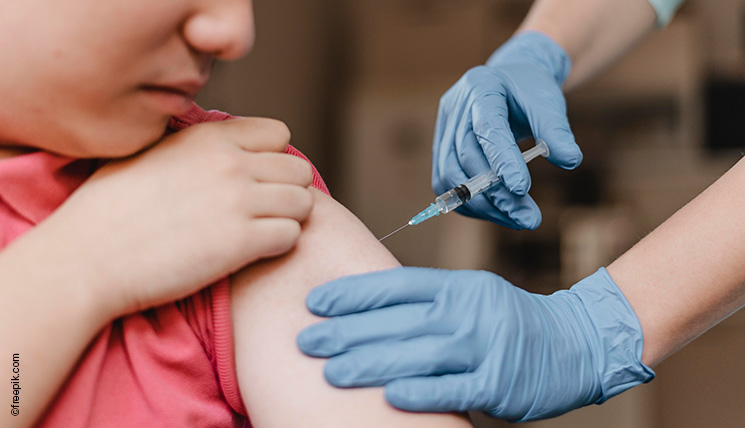As the COVID-19 pandemic has recently demonstrated, vaccinations are one of the most important and effective preventive measures in medicine for the protection against an infectious disease. Dengue fever is one of the most common infectious diseases worldwide, but often underestimated.
Dengue fever is caused by dengue virus (DENV) which is, among others, spread to humans by mosquitoes of the types Aedes aegypti and Aedes albopictus. The virus is divided into four related but genetically differing serotypes (DENV 1–4). After recovery, there is usually life-long immunity against the serotype of the infection. However, this also means that one person can contract dengue fever up to four times in their lifetime. Especially in the last few years, the virus has spread throughout the world at an alarming rate. DENV is currently endemic in more than 100 countries, especially in tropical and subtropical regions. The virus has spread in Southeast Asia, North and South America, the West Pacific, Africa and the eastern Mediterranean region through sustained outbreaks. A study on the global geographical distribution of the virus concluded that 3.9 million people in 129 countries are currently at risk of dengue virus infection [1].
Luckily, there are vaccines to prevent dengue virus infections. The first dengue vaccine Dengvaxia (CYD-TDV; Sanofi Pasteur) was put on the market at the end of 2015 and is currently approved in around 20 countries. The CYD-TDV vaccine is only used on persons (mostly children and adolescents) who live in endemic areas and have already been infected with DENV at least once. This is because the effectiveness and safety trials for the vaccine revealed that seronegative vaccinees (no known dengue infection before vaccination) showed a significantly increased risk to develop a severe course of dengue fever in case of a later infection, which might be due to so-called antibody-dependent enhancement (ADE) [2]. This complication was not observed in seropositive vaccinees.
A previous dengue fever infection is identified based on the detection of virus-specific antibodies. Not all antibody tests can be used for pre-vaccination screening as, for example, some tests cross-react with antibodies against other flaviviruses such as Zika virus and are thus not suitable to reliably detect previous dengue virus infections. The Centers for Disease Control and Prevention (CDC) therefore recommend double testing with two specific test systems for the detection of anti-dengue IgG antibodies. One of the two test systems as part of this two-step algorithm is the EUROIMMUN Anti-Dengue Virus NS1 Type 1–4 ELISA (IgG).
The EUROIMMUN Anti-Dengue Virus NS1 Type 1-4 ELISA (IgG) is based on a recombinant virus-specific NS1 antigen of the serotypes 1–4. The quality of the antigen used ensures a high specificity of the ELISA, mainly regarding potential cross-reactions with antibodies against other flaviviruses such as the before-mentioned Zika virus. The test is CE-marked (IVDD) and currently approved for research use only in the USA. Furthermore, EUROIMMUN offers flexible solutions for the fully automated processing of the ELISAs suitable for different laboratory sizes: High-throughput analyses, for example up to 15 ELISA plates and up to 700 samples in one run, can be processed with the EUROLabWorkstation. For medium and low throughputs, EUROIMMUN Analyzer I or the EUROIMMUN Analyzer I-2P are ideally suited.
Watch this video to see how challenging a dengue infection can be for patients and their relatives (English subtitles):
[1] Brady, O.J., et al., Refining the global spatial limits of dengue virus transmission by evidence-based consensus. PLOS Neglected Tropical Diseases 6(8): p. e1760 (2012).
[2] Halstead, Scott B., Dengvaxia sensitizes seronegatives to vaccine enhanced disease regardless of age. Vaccine 7;35(47):6355-6358 (2017).


